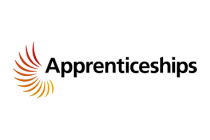UCAS
The UCAS website has masses of information on it about the application process, course information, university information, events, student finance, careers and more. It’s a really good place to start with your decision making.
Make sure you familiarise yourself with the UCAS timeline so you know what timescales you’re working to https://www.theuniguide.co.uk/advice/ucas-application/ucas-deadlines-key-application-dates. This is important as different courses and universities have different timescales.
Good parts of the UCAS website to check out:
· How to choose and course and university https://www.ucas.com/undergraduate/what-where-study
· Open days and events https://www.ucas.com/undergraduate/what-and-where-study/events-and-open-days
· Subject information https://www.ucas.com/explore/search/subject-guides
· The application process https://www.ucas.com/undergraduate/applying-to-university
· What to expect after you’ve applied https://www.ucas.com/undergraduate/after-you-apply
· Student Finance https://www.ucas.com/money
The UCAS Bootham handbook can be found here
Resources
University information
There are lots of independent guides and resources to help you make your decisions. Some of these can be found below:
· Information to help make informed choices about higher education decisions www.theuniguide.co.uk
· Independent UK university rankings and course information and advice https://www.thecompleteuniversityguide.co.uk/
· Help to decide which is the right place for you www.Whatuni.com
Resources
There’s a wealth of resources available to help students navigate their career choices and pursue subject areas of interest. Below is a list of some which you might find useful.
· The University of Oxford’s “Home of the Big Question”. This site tackles complex ideas on a range of subjects and aims to realise aspirations, promote broader thinking and stimulate intellectual curiosity https://oxplore.org/
. https://www.ox.ac.uk/admissions/undergraduate/increasing-access/ug-digital-resources/students-over-16 Huge list of useful super curricular resources
· Resources and Information for students thinking about applying to top universities Staircase 12 https://www.univ.ox.ac.uk/applying-to-univ/staircase12/
· A huge choice of online learning programmes https://www.mooc-list.com/ There's a lot of choice so look for ones which appeal most to you and check that they are free
· A huge range of online talks www.ted.com
· Here you’ll find podcasts and videos on a wide range of subjects www.bbc.co.uk/sounds
· On line short courses https://www.futurelearn.com/
· Explore your subject area beyond the curriculum with super curricular resources from Cambridge university https://www.myheplus.com/
· A wide range of programmes to download for free BBC Podcasts https://www.bbc.co.uk/podcasts
Study skills and PresentationsUnifrog
Unifrog
At Bootham we use Unifrog as a tool to help students explore their career options, look at courses and to gather and record all the information needed to make applications to university or employment. If you apply to university you can also use it to write your UCAS personal statement, and to get feedback from your tutors. You will need your Unifrog log in details to access your account. You will get a log on at the start of College 1. Once logged in to Unifrog you will find subject information, career information and a know-how library with lots of advice and information. These are all accessed from https://www.unifrog.org/student/home but you’ll need to sign in first. You can also search for university courses, filtering for ones which interest you.
You can also find lots of MOOCs on here (massive open online courses) which are a great way of trying out a subject area, or doing further learning about your chosen subject. You can take personality tests or quizzes too, if you’re unsure of where to start with narrowing down your options. There’s also information about apprenticeships, universities in Europe or further afield.
Open Days
Open days
Universities hold on campus open days generally between Easter and Autumn of the year before you are due to start university. Check individual university websites for details, or visit opendays.com https://www.opendays.com/
If you don't get to attend an open day before you apply, most universities who make you an offer will invite you to an interview or to an offer holders event, sometimes called an applicant day or a visit day.
Below is a small list of open days for some of the universities often popular with Bootham students.
University of Birmingham www.birmingham.ac.uk/opendays
University of Bristol www.bristol.ac.uk/opendays/
University of Cambridge https://www.undergraduate.study.cam.ac.uk/events/cambridge-open-days
University of Durham https://www.dur.ac.uk/study/ug/visit/
University of Edinburgh www.ed.ac.uk/studying/undergraduate/open-days-events-visits
University of Essex www.essex.ac.uk/study/ug/open-days.aspx
University of Exeter www.exeter.ac.uk/undergraduate/visiting/opendays/
University of Glasgow www.glasgow.ac.uk/openday
University of Hull http://www.hull.ac.uk/opendays
Imperial College London www.imperial.ac.uk/study/ug/visit/open-days/
University of Lancaster www.lancaster.ac.uk/study/open-days/
Leeds Beckett www.leedsbeckett.ac.uk/undergraduate/open-days
University of Leeds www.leeds.ac.uk/opendays
University of the Arts London www.arts.ac.uk/open-days
University of Manchester www.manchester.ac.uk/undergraduate/opendays/
Manchester Metropolitan University www.mmu.ac.uk/openday
Newcastle University www.ncl.ac.uk/openday/
Northumbria University https://www.northumbria.ac.uk/openday
University of Oxford https://www.ox.ac.uk/admissions/undergraduate/virtual-open-day
Oxford Brooks University www.brookes.ac.uk/open-day
University of Sheffield www.shef.ac.uk/opendays/
Campus tours
Many universities offer campus tours which are much briefer than an open day but are still a good way to find out more about a particular university you might be interested in. Check individual university websites for more details.
Fairs, subject sessions and events
Information and adviceWhat
Who
When
Link
Parents info sessions UCAS https://www.ucas.com/discover/advice-for-parents-guardians-and-carers/ucas-parents-podcast Student Finance University of Portsmouth 17/03/26 (students)
24/03/26 @ 5pm (parents)
22/04/26 @ 5pm (parents)https://www.port.ac.uk/collaborate/schools-and-colleges/getting-started/live-sessions Subject Discovery Fair Unifrog 11/03/26 @ 4-6.30pm https://webapp.spotme.com/login/eventspace/subject-discovery-fair Mock US Uni Admissions Experience A List Education 09/04/26 @ 6pm https://alisteducation.co.uk/webinars European University Admissions The University Guys 24/03/26 @ 6-6.45pm https://www.theuniversityguys.com/events/for-students/ Canadian University Admissions The University Guys 27/06/26 @ 6-6.45pm https://www.theuniversityguys.com/events/for-students/ UK University Admissions The University Guys 16/05/26 @ 3-
3.45pmhttps://www.theuniversityguys.com/events/for-students/ Middle East University Admissions The University Guys 19/05/26 @ 6-6.45pm https://www.theuniversityguys.com/events/for-students/ USA University Admissions The University Guys 17/06/26 @ 6-6.45pm https://www.theuniversityguys.com/events/for-students/ European University Admissions The University Guys 07/07/26 @ 6-6.45pm https://www.theuniversityguys.com/events/for-students/ Canadian University Admissions The University Guys 04/08/26 @ 6.30-7.15pm https://www.theuniversityguys.com/events/for-students/ Asia & Pacific Region University Admissions The University Guys 08/09/26 @ 6-6.45pm https://www.theuniversityguys.com/events/for-students/ UK University Admissions The University Guys 19/09/26 @ 3-3.45pm https://www.theuniversityguys.com/events/for-students/ USA University Admissions The University Guys 13/10/26 @ 6-6.45pm https://www.theuniversityguys.com/events/for-students/ European University Admissions The University Guys 10/11/26 @ 6-6.45pm https://www.theuniversityguys.com/events/for-students/ Canadian University Admissions The University Guys 08/12/26 @ 7-7.45pm https://www.theuniversityguys.com/events/for-students/
Subject webinars, residentials, talks and tasters
On demand sessionsWhat
Who
When
Link
Videos about studying in the UK Studentstream On demand https://www.studentstream.co.uk/ STEM activities STEM.org On demand https://www.stem.org.uk/ University guidance videos including subject and skills development
Uni Taster Days
On demand
Large range of on demand subject sessions
Hull University
On demand
Large range of on demand subject sessions University of Liverpool On demand https://www.liverpool.ac.uk/undergraduate/on-demand/ University information and guidance videos
University of Sheffield
On demand
Training and ApprenticeshipsWho
What
Link
Met Office Apprenticeships in Technology, Engineering, HR, Legal Services, Project Management, Finance and Communications, https://careers.metoffice.gov.uk/early-careers/apprenticeships
Deadline 08/03/26Guide to degree apprenticeships https://www.degreeapprenticeships.guide/ Rolls Royce Apprenticeship opportunities https://careers.rolls-royce.com/united-kingdom/students-and-graduates/ PwC Accounting, tech, business opportunities https://www.pwc.co.uk/careers/early-careers/our-programmes/join-us-from-school.html?gad_source=1&gad_campaignid=21700106593&gbraid=0AAAAAD_ANUVqbtA4hWkSlYFzwB0tyu1Oe&gclid=EAIaIQobChMIz-24wqiljQMVE6qDBx1l3S-oEAAYASAAEgIWb_D_BwE Range of apprenticeships Asda, Government Social Research, Lloyds, Essity See Unifrog Nestle apprenticeships
Nestle
https://www.nestle.co.uk/en-gb/jobs/nestle-academy/apprenticeships
Engineering, IT and Finance apprenticeships
Network Rail
https://www.networkrail.co.uk/careers/early-careers/apprenticeships/
How to choose
How to choose a course and university
There are over 50,000 courses on offer in the UK at nearly 400 different providers including universities, colleges, private providers etc. There are also options available elsewhere in Europe and further afield. You can study one subject (single honours) or two (joint honours). You can study full time or part time. Many courses have the chance to study abroad, complete work placements or do a whole year in industry or in the workplace (known as a sandwich courses).
With so many choices available it can be hard to know how to narrow down your options. We strongly suggest visiting some universities towards the end of College 1, over the summer and at the start of College 2. Details will be on university websites or visit www.opendays.com where you can search by university. If you miss an open day then lots of universities have pre recorded sessions and you can watch sessions in your own time.
Universities are also coming up with lots of other ways for prospective students to find out more about them. This includes:
· On line webinars, tasters and masterclasses
· Q and A sessions
· On line chat with current students
· On line videos
· Online short courses
· Virtual accommodation and campus tours
· Online personal statement workshops and interview skills sessions
· Student vlogs
· Parent phone calls
· Online summer schools
There are also careers fairs organised by UCAS https://www.ucas.com/ucas/events/find/type/exhibition?layout=list. UK University Search also hold fairs https://www.ukuniversitysearch.com/
Things to think about when making your decisions
League tables
You might want to use league table to start to narrow down your choices. There are a few different league tables and they differ as to what they take into account for rankings but it generally includes student satisfaction rates (for teaching and assessment and feedback) career prospects, research information, expenditure per student, completion rates, entry requirement and student experience. This is a useful article to explain how league tables work https://bridge-u.com/blog/university-league-tables/
Type of university
You might have heard of the Russell Group. This is a group of 24 UK research intensive universities. Some students limit their choices to universities within this group. There’s the University Alliance group which are technical and professional universities who focus heavily on practical experience. The Million+ group are a more modern group of universities focusing on economic, social and cultural change.
Teaching Excellence and Student Outcomes Framework (TEF)
This measures teaching, learning and student outcomes. Providers are awarded gold, silver or bronze ratings for the University as a whole (it doesn't differ from course to course).
Scholarships & Bursaries
These will differ depending on what course you are looking at and which universities you are applying to. Check individual university websites for more information.
Campus investment/facilities
This might include the library, sports facilities, IT facilities, students’ union, lecture theatres, planned investment, facilities for students with additional needs and specialist facilities but think about what’s important to you. This could be particularly important if you’re studying a practical degree subject.
Graduate destination statistics
Most universities have information about this on their website or you can find it out through league tables.
Student Support Services
All universities will have a level of student support (inducing financial support advice, wellbeing, disability support, dyslexia support, care leavers support, counselling, faith support etc) but some universities will focus on this more and place it at the heart of the student experience.
Location
This includes distance to home, travel links and ease of getting around, big city or smaller town, rural or urban, location of university accommodation.
Size
This includes size of student population, number of students on your chosen course, staff to student ratio for your subject and size of campus.
Accommodation
This includes location, size, distance to university, price, facilities, contract length, en-suite or shared facilities, security, catering etc.
You might also want to consider the reputation for your subject area, module choice, whether the course is accredited by any professional bodies, size of your student cohort, application methods and interview methods, graduate destinations, number of applications per place, contact hours, industry links, work placements etc. There’s an enormous amount of choice so key to making the right decision is starting your research early and allowing yourself enough time.
Presentation on choosing firm and insurance courses and choosing university accommodation can be found hereStudent Finance
Student Finance
Student finance can be divided up into two parts: tuition fees and living costs. Tuition fees are currently a maximum of £9,535 for UK full-time students. Normally these increase in line with inflation and are set by the government. Fees for non UK students vary and can be found on university course pages. Tuition fee loans, to cover the full cost of your course, are available for most UK students and are paid directly to the course provider. You won’t have to pay it back until after you finish your course, when you’re earning above a certain level. When you do start to repay it takes the form of monthly repayments, the level of which depends on how much you earn.
The other costs you’ll need to cover are living costs. This includes accommodation, food, travel and other general living expenses. Maintenance loans to cover these costs can be applied for at the same time as a tuition fee loan, lending you money at the start of each term (or monthly in Scotland). How much you get depends on a range of factors including:
household income Students from lower income backgrounds are eligible for more – this is often referred to as ‘means-tested’ finance, and requires parents/guardians to provide evidence of their income.
where you study Students moving away from home to study in London receive more.
Students can also apply for grants if they’re eligible for certain benefits, disabled, or need help with childcare costs. Grants do not have to be repaid. It’s also worth looking into additional funding, in the form of scholarships, bursaries, and grants. These don’t have to be paid back either, and are awarded based on different criteria, from excelling in your subject area, getting top A level grades or excelling in extra- curricular activities. Details of these can be found on individual university websites.
Students on some health courses are eligible for the NHS Learning Support Fund (LSF) more details of which can be found here: https://www.nhsbsa.nhs.uk/nhs-learning-support-fund-lsf
Most university websites will have pages dedicated to student finance and funding. On them you’ll find general information and also information specific to that particular university. The sites below have general information.
· An overview of student finance and how to apply for funding www.gov.uk/student-finance
· Managing money, scholarships, grants, bursaries and fees https://www.ucas.com/money
· Scholarships and bursaries for university study https://www.moneysavingexpert.com/family/grants-education/
· Information about fees and living costs, grants and loans and discussion boards and forums https://www.thestudentroom.co.uk/student-finance/
. Undergraduate Student Finance step by step information https://www.gov.uk/get-undergraduate-student-loan
Apprenticeships
Apprenticeships
In an apprenticeship you will get on-the-job experience whilst also getting paid. There are hundreds of different apprenticeships to choose from. You’ll normally spend about 80% of the week working at your place of employment and 20% at your place of study. You’ll earn a salary, and your course fees will be covered by your employer and the government. You need to be willing and able to manage your time between work and study. An apprenticeship can be a debt free route to a qualification. The rate of pay can vary according to the level of apprenticeship, your age, your sector and your employer.
There are many different apprenticeships you can apply for depending on your existing qualifications across a broad range of different industries. There are four levels of apprenticeship available:
Intermediate - Equivalent to five GCSE passes at A* to C
Advanced - Equivalent to two A level passes
Higher – Equivalent to foundation degree, Higher National Diploma, NVQ Level 4
Degree – Equivalent to bachelor’s or master’s degree. Takes 3-6 years.
For some apprenticeships you apply directly to the employer and for others apply through the National Apprenticeship Service.
More information is available at https://www.apprenticeships.gov.uk/# and https://www.ucas.com/understanding-apprenticeships
Enrichment
The MASSOLIT video essay competition in partnership with Brasenose College is back for 2026!
Now in its sixth year, the MASSOLIT Video Essay Competition is a ready-made project for your students – and for 2026, we’re hoping to get more entries than ever, so please do share it with your colleagues.
Key info:
Entries are open now, closing Friday 26th June 2026
Competition is open to students who are currently in Y10, Y11 or Y12
Lectures should be 'talking head' style
Video lectures must be between 8-12 minutes long
https://massolit.io/competition
Peterhouse Kelvin Biological Sciences Essay Competition
The Peterhouse Kelvin Biological Sciences Essay Competition aims to give students the opportunity to explore scientific concepts and topics beyond the classroom, and to engage with scientific research.
Deadline: 11:59pm, 20th April
Open to: UK and Ireland students in Year 12
Find the questions and enter here
Articulation Challenge
The Discover Articulation Challenge invites students to film a 2-3 minute video of themselves talking about a piece of artwork of their choice. In collaboration with the National Gallery, the competition aims to increase critical thinking skills, confidence in public speaking as well as research and presentation skills.
The competition is open now until Wednesday 18th March for submissions. You can find all the information on our website including how to enter, guidelines, top tips and more https://accessandoutreach.leeds.ac.uk/arts-and-humanities/discover-articulation-challenge/
University of Warwick Global Sustainable Development competition
https://warwick.ac.uk/fac/arts/schoolforcross-facultystudies/gsd/engagement/gsdcompetition/
Myths & Legends: Classics Competition
Myths and Legends is a classics competition which has run for over 70 years at the University of Leeds, and is a celebration of Classics, Reading and Performance.
Imperial College Faculty of Natural Sciences Science and Innovation CompetitionThe competition is aimed at Key Stage 3 students and is a great opportunity to introduce Classics to school students already familiar with English, History and Drama, highlighting the links to their current subjects and developing their oracy/public speaking skills in an exciting way.
https://artsoutreach.leeds.ac.uk/our-subjects/classics/classics-competition/
Closes 2 March 2026
Teams are asked to develop a new and innovative scientific solution to help achieve one of the United Nation’s Global Goals for Sustainable Development. If you are a UK school or institution (youth group, scout/girl guide etc) we encourage applications from the young people you work with.
Teams must consist of 2 - 4 individuals, with a teacher, group leader or other responsible adult acting as a mentor and point of contact. More information on the competition and how to register can be found on the Faculty of Natural Sciences Science & Innovation UK Competition website.For any queries please email fonsschoolscompetition@imperial.ac.uk.
The Ethics Cup
The Ethics Cup is a school competition that promotes interest in philosophy for secondary school pupils and models civil discourse on important contemporary issues. This year's competition will launch in September, and the date for the regional heat, hosted by the School of Government and International Relations at Durham University, will be announced then https://www.durham.ac.uk/departments/academic/school-government-international-affairs/about-us/outreach/the-ethics-cup/Young Historian Awards 2026
The purpose of these Prizes is to encourage you to think, research and frame your own questions that you will answer from further reading and research. This might be the result of a piece of work your teacher has set you to do at home, or it may be a piece of research you are carrying out for your own interest. It is also an opportunity to perhaps tell some of the untold stories around the themes. Deadline: 17th July https://www.history.org.uk/secondary/categories/516/news/3689/young-historian-awards-2026-take-part-secondary
Bloxham Sustainability Challenge
All schools are invited to participate in the Bloxham Sustainability Challenge, an initiative aimed at year 12 students to empower them to become sustainability leaders by responding to real-world, industry-linked challenges. This year’s challenge, Powering the future: planning onshore windfarms for a greener Britain, invites students to be consultants using Esri's ArcGIS tools to explore the complexities around siting a windfarm.
Open to: students in Year 12 (S5 – Scotland. Y13 – N.I)
The Great Debate 2026
The Great Debate is a public speaking competition where students have 5 minutes to present their speech arguing their answer to the question.
Over the past couple of years the competition has been growing in size. To encourage as many young people to get involved as possible, and ensure as many local stories as possible are included, we have increased the number of heats and added a semi-final round.
The competition for this year is: How important are personal and public records as evidence for explaining the story, or stories, of your local area?
Open to: students in Year 10 to Year 13 (S3 to S6 – Scotland, Y11 to Y14 – N.I)
Find out more and register here
Girton College Humanities Writing Competition
This is an opportunity for students in Year 12 or equivalent to research and write beyond the curriculum, using one or more of five selected objects from the Lawrence Room museum objects, as their focus. Essays or creative responses (such as dramatic monologues, short stories or poems) are equally welcome.
Deadline: 20th March
https://www.girton.cam.ac.uk/humanities-writing-competition
Oxford and Cambridge
A lot of the colleges have their own prospectuses so take a look at these. They are often written by current students and give an unofficial view of life at that college. Some other useful videos can be found below. Cambridge You Tube channel https://www.youtube.com/cambridgeuniversity and Oxford https://www.youtube.com/oxford
- Applying to Oxford and Cambridge
- Making a competitive application
- Student Experience
- Student Support
Live pre recorded Q&A sessions
- Making a competitive application
- Student Experience
- Student Support
CAMBRIDGE
Essay writing Master Class for women interested in Humanities and Social Sciences https://cambridge.eu.qualtrics.com/jfe/form/SV_bKmfiJafTIzemPA. Applications close 11 March 2024
The University's HE+ website www.myheplus.com provides resources for sixth form students to explore their subject(s) of interest beyond their current curriculum.
Useful links:
https://www.undergraduate.study.cam.ac.uk/events/college-events
www.undergraduate.study.cam.ac.uk/events
This is a useful link for parents https://www.undergraduate.study.cam.ac.uk/find-out-more/teachers-and-parents
Cambridge Students' Union manage the alternative prospectus website www.applytocambridge.com which includes an 'Ask a Student' facility for each course and College.
Downing College
Subject based admissions webinars https://www.dow.cam.ac.uk/outreach/subject-admissions-webinars for recordings of past events.
St John's College
View past sessions focusing on areas from Choosing your University Subject through to Study Skills and Careers sessions. More information here https://www.joh.cam.ac.uk/link-area-webinar-programme
Clare College
YouTube Channel Videos about studying at Cambridge and the application process https://www.youtube.com/channel/UCqQCkyaJ_z8q8DwnlbykO7A/featured
Sidney Sussex YouTube Channel
https://www.youtube.com/channel/UC5ZhtCIF6B6D6NeL9YytXTQ
Lucy Cavendish’s new supracurricular webpage
Lucy Cavendish College has created a webpage for potential applicants to explore resources for their courses. The page features supracurricular resources for all subjects available to study at Lucy Cavendish (all Cambridge courses, apart from Music). All the resources can be accessed online and are free. You can find the webpage here.
OXFORD
Sign up to the Choosing Oxford newsletter here http://newsletter.admin.ox.ac.uk/k/Ouc/undergraduate_admissions_and_outreach_news
Sign up to the Oxplore newsletter https://oxplore.org/ Oxplore is a digital resource from the University of Oxford. As the ‘Home of Big Questions’, it aims to challenge those from 11 to 18 years with debates and ideas that go beyond what is covered in the classroom. Big questions tackle complex ideas across a wide range of subjects and reflect the kind of critical thinking students undertake at university.
Details of talks and workshops can be found here: Oxford outreach calendar: https://www.ox.ac.uk/admissions/undergraduate/increasing-access/events-calendar
- Mansfield virtual open day playlist (includes subject intros):
- Oxford University
Explained:
- Applying to Oxford
playlist:
- Videos about student societies:
- Isolation conversation: https://www.mansfield.ox.ac.uk/isolationconversation
- Explore your subject: https://www.mansfield.ox.ac.uk/explore-your-subject
The digital resource hub shares recommended learning resources including those provided by tutors from academic departments. The resources for students over 16 will be particularly relevant. These aim to encourage students to explore their interests in depth and learn more about studying at Oxford.- Applying to Oxford and Cambridge











